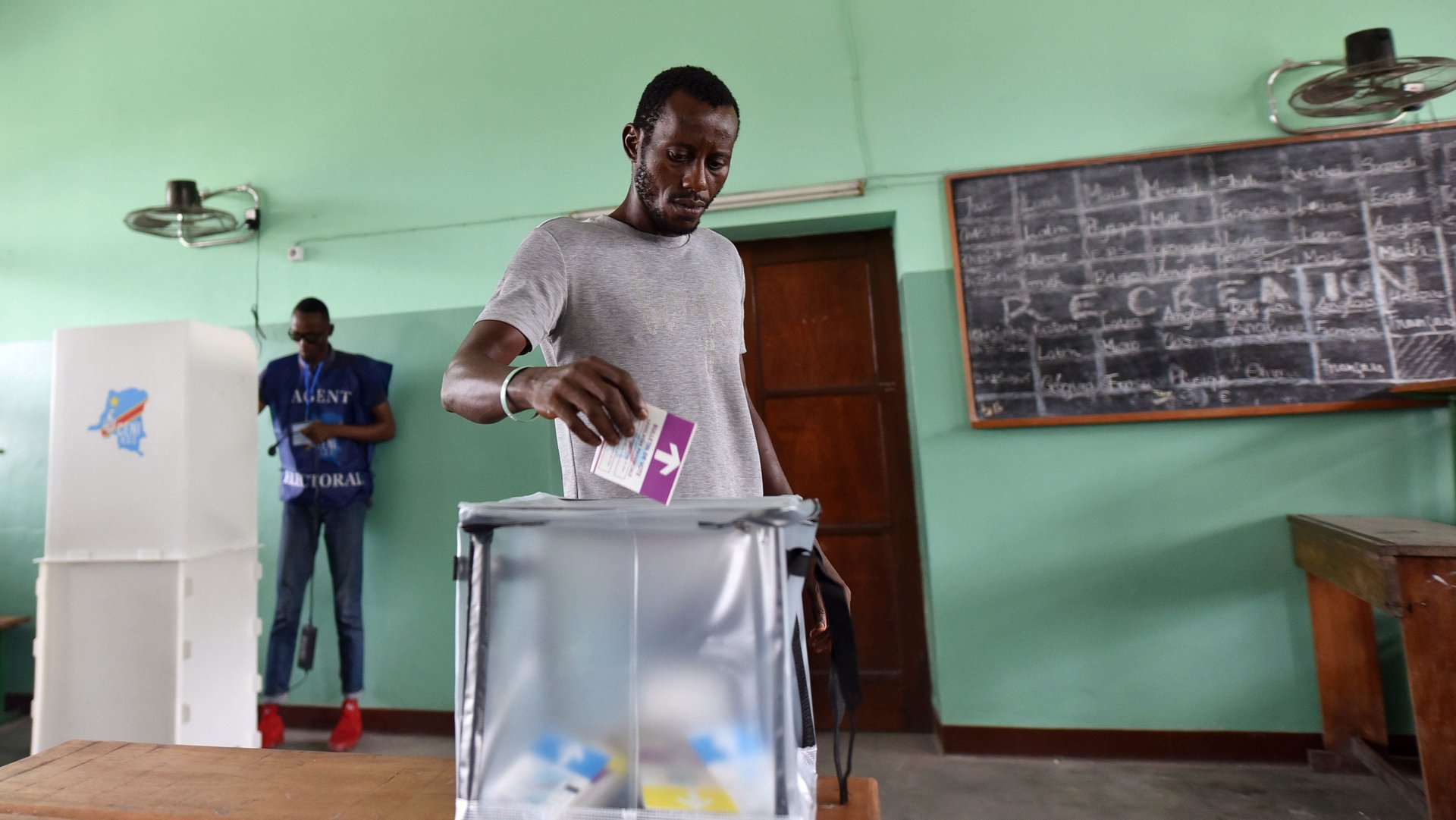An internet shutdown is the latest frustration hitting voters in DR Congo
An internet shutdown across the Democratic Republic of the Congo is heightening fears of electoral fraud in a presidential election already marred by delays and violence.


An internet shutdown across the Democratic Republic of the Congo is heightening fears of electoral fraud in a presidential election already marred by delays and violence.
Internet connectivity in the vast central African state was already disrupted before voters headed to polls on Dec. 30, according to advocacy group NetBlocks, which maps internet freedom globally. A full blackout was also experienced in major cities, including the capital Kinshasa, after results started trickling in on Monday (Dec. 31), with outages impacting mobile and fixed-line connections.
The success of these elections, already delayed for two years, is crucial for the mineral-rich state, given that president Joseph Kabila is stepping down after 17 years in power. Assassinations and coups have prevented the DRC from having a peaceful transfer of power since gaining its independence from Belgium in 1960.
But the polls were marred by logistical challenges, insecurity, and fake news. An estimated one million voters in opposition stronghold areas won’t be able to vote until March—after the new president’s inauguration—a decision the government pinned on the worst Ebola outbreak in the nation’s history.
Internet provider Global and telecom operator Vodacom told the AFP that they had cut web access on government orders. The government said they were enforcing the restrictions to prevent the circulation of fake results online, and to avert “chaos” and a “popular uprising.” Officials have said the blackout would last until the publication of preliminary results on Jan. 6; final results aren’t expected until Jan. 15. NetBlocks noted the interruption to connectivity wasn’t centralized and was being carried “at the discretion of commercial operators.”
Shutting the internet during this crucial transitional moment doesn’t bode well for the tenability of the election, nor solve the problem of misinformation online, Internet Sans Frontières executive director Julie Owono says.
“Past experiences in Mali, Republic of Congo, and Equatorial Guinea have proved that internet disruptions during elections are clear signs of irregularities. These events must be taken seriously into account by election monitoring missions in their final assessment of the vote.”
The state has resorted to cutting off internet access to its over 83 million people as anti-Kabila sentiment has risen in recent years. Authorities have also targeted services like WhatsApp, Facebook, YouTube, and Skype in order to hamper communication among protesters, while allowing businesses like banks to operate. Rights groups have pointed to a 2002 law that confers a broad mandate on the government to take charge of communication facilities in the interest of national security.